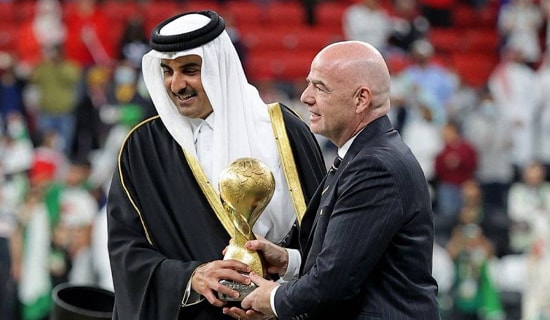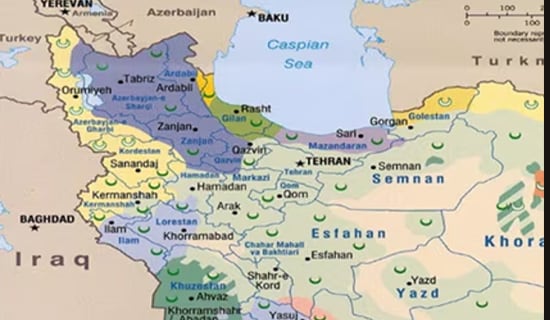In a recent TV interview, Stanford University professor Fouad Ajami presented the case for U.S. intervention in Syria and said that America had an "historic responsibility" to wage humanitarian wars "to rescue nations in a crisis of historic proportions." Calling Barack Obama "an isolationist, who does not believe in the spreading of American ideals," Ajami said that the U.S. president "believes that an American presence in any country in the Islamic world causes problems," and that as such, he is "beyond hope." The interview with the Lebanese-born Ajami, a senior fellow at Stanford University's Hoover Institution, was broadcast on Orient News TV, a channel run by the Syrian opposition, on October 11, 2013. To view excerpts from the interview, go to MEMRI TV clip 4013.
The following is a translation of these excerpts:
Obama Made Moral And Political Mistakes In Syria
Interviewer: "You described U.S. President Barack Obama as a magician or a Houdini, because he managed to conceal what is going on in Syria today from American public opinion."
Fouad Ajami: "The article you are asking me about was written in some bitterness. In it, I admitted that President Obama had 'succeeded' in concealing the Syrian revolution and tragedy from America's conscience. For example, after 30 months of massacres in Syria, he focused on one thing only – the August 31 attack on Ghouta. That attack is the only thing he cares about. In addition... Russia had left the region after the end of the Cold War, but he brought the Russians back to the region, and gave Bashar Al-Assad another chance. It was a mistake, both morally and politically.
[...]
Obama – An Isolationist, Who Is "Beyond Hope"
Fouad Ajami: "A long time ago, as early as 2008, when Barack Obama appeared on the scene as a historic phenomenon, with his great charisma and popularity, I was a bit skeptic about him. I did not join in the general enthusiasm about him. I have been writing columns, especially in the Wall Street Journal, week after week, month after month, saying that this man is an isolationist, who does not believe in the spreading of the American ideals. If we consider the heritage left to him by George Bush – George Bush believed in the spreading of freedom. He believed that the U.S. has a responsibility and a role to play in defending freedom.
"When we saw how Obama dealt with the issue of Iraq – that was the beginning of the problem with Barack Obama. Even when Obama intervened in Libya, he had really tried to avoid it. The unfortunate thing with regard to Libya – which was a harbinger of things to come in Syria, and of how he would neglect to defend the Syrian people – is that he did not embrace the war against Mu'ammar Al-Qadhafi. He did it, but called it 'leading from behind.' That was when I realized that the Syrian people would have to struggle alone, without any help from the U.S.
[...]

"George W. Bush was courageous, and he believed in the U.S. Barack Obama believes in something else. He believes that an American presence in any country in the Islamic world causes problems. When the president believes such a thing, you know that he is beyond hope.
[...]
Without U.S. Intervention In Syria, The Assad Regime Will Emerge Scot-Free
"If not for the French, British, and American intervention in Libya in 2011, Al-Qadhafi would have slaughtered everybody. The same holds true for Iraq in 2003. All the massacres and tragedies in Iraq... Nothing would have changed. When I would travel to Iraq, I would talk to the people – and you know what the Arabs are like... They would criticize the U.S. I would say to them: Stop talking like that, guys. You know that if George Bush had not come along, you would have moved from the rule of Saddam Hussein to the rule of his son Qusay, and then to the rule of his grandson Mustafa. The Ba'th Party would have ruled for a thousand of years.
"But the important thing with regard to Syria is that if the U.S. does not intervene, Bashar Al-Assad's regime will manage to emerge scot-free from this crisis."

Interviewer: "How long will Obama continue to refrain from intervening in Syria? Can he continue to maintain this position, and until when?"
Fouad Ajami: "By God, I don't know. I always said that if Syria were to suffer a tragedy like in Bosnia, in the town of Srebrenica, the atmosphere in America would change, for sure.
[...]
"You can say that Barack Obama is thick-skinned. He managed to tolerate everything he saw in Syria, the massacres... He saw the historic city of Aleppo, the largest city in Syria, being destroyed, yet managed to remain on the sidelines. No one would have thought that such things could happen without American intervention."
[...]
America Has Historic Responsibility To Rescue Nations In Crisis
Fouad Ajami: "We have learned something from what we saw in Bosnia, in Iraq, and in all the human tragedies. We use the term 'international community,' but I always say that without the American role, there would be no international community. That is the truth. Take Libya, for example. When that lunatic, bloodthirsty tyrant Mu'ammar Al-Qadhafi threatened the people of Benghazi that he would hunt them down home by home, neighborhood by neighborhood, the people's conscience was awakened, first in France and Britain, and only later in the U.S. But if the U.S. had not played its role, Al-Qadhafi would have slaughtered the people of Benghazi.
"We saw the same historical 'game' in Iraq. Take Kurdistan, for example. What would have happened there without American protection? The Kurds would have not been able to establish an independent society.
[...]
"When you say this to people, they say: 'Oh you believe in American imperialism.' But this is the reality. All these humanitarian wars to rescue nations in a crisis of historic proportions... Take Kuwait, in 1991. If not for the American intervention in Kuwait, it would have become part of Iraq, as Saddam Hussein used to say – the 19th governorate of Iraq. The same thing happened in Bosnia in 1995, in Kosovo in 1999, in Iraq in 2003, in Afghanistan, and in Libya. All these humanitarian wars relied upon the American role, and the American belief in its historic responsibility.
"Perhaps the average American living in Nebraska or California does not want to be the world's policeman, but this is not the question. It is the United States that maintains world order, and if it were to cease to do so, there would be tragedies and massacres, like we are witnessing in Syria today."
U.S. Intervention Would Remove Jihadi Movements From Syria
Interviewer: "Are the extremist forces likely to remain in Syria? Will Syrian society accept this?"
Fouad Ajami: "This kind of discussion has been held in the past with regard to Bosnia. Our viewers probably do not remember what happened there. The same thing happened – Jihadists and takfiris went to Bosnia, and I said back then that when the U.S. air force would arrive, they would all flee. When the U.S. air force arrives [in Syria], and the Syrians see that their ally in the struggle for freedom is the U.S., and that the U.S. president believes in this and talks about it... At this point in time, the U.S. president is not talking about the struggle of the Syrian people, and is not giving it the support and nobility it deserves. In the event of significant American intervention, however, all these movements will come to an end."
[...]









